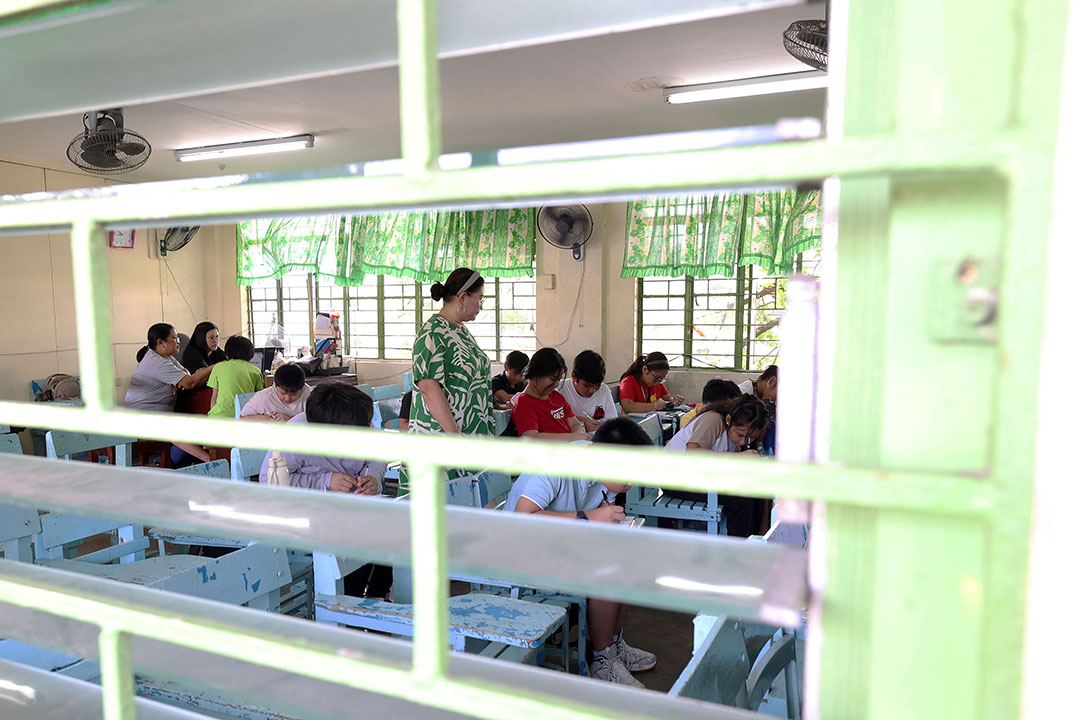
Grassroots & Governance
By Teresa S. Abesamis

In literacy and numeracy tests given to elementary level students in the ASEAN region, Vietnam is now the topnotcher. The Philippines ranks just a level above Myanmar at the bottom of the standings. This is likely because when “Uncle Ho” (Ho Chi Minh) became president of his victorious country, he focused on investing in his people. In other words, education became a development budget priority.
In the United States, for a long time the world’s top-performing economy, Donald Trump has banned foreign students from obtaining student visas at Harvard University. One reason he cites is it has allegedly become a hotbed of communist sympathizers. Xi Jinping’s only daughter has been a student there, along with many descendants of China’s communist party leaders. Some Chinese students have gone to Stanford, Columbia, and other Ivy League schools.
Today, Vietnam and China are fast becoming dynamic economies, powered by its highly educated engineers and scientists who are leading their manufacturing industries. China, for one, is going deeply into high technology sectors including AI.
Meanwhile, the Philippines, once upon a time second only to Japan as the leading economy in Asia, has become a consumer-led economy powered by its heroic overseas Filipino workers (OFWs), mostly low-level domestics, whose families suffer the consequences of the separations. The sad reality is that our “high growth” economy would collapse without these remittances from our OFWs.
Meanwhile, our legislators have violated the Constitutional provision requiring education to have the highest share of the national appropriations. The legislators have prioritized public works, which provides for pork barrel in our election year. The congressmen reduced the allocations for education and other social services, including provisions for hungry families. We know the effect of malnutrition on the ability of hungry children to learn.
A whole warehouse of laptops which somehow were not distributed to teachers had become obsolete; a waste of millions of pesos of taxpayer money. There are not enough classrooms for our high growth population; and so, there are too many students crowding too many classrooms burdening too few teachers.
The word “education” has its roots in “educe” (“draw out”). And yet, basically our education system is what you might call “banking.” Teachers are expected to deposit information which the students have to play back when the teachers ask them to withdraw the same information. Because of the need to give grades, quizzes are given and corrected regularly to produce numbers. True or false and multiple-choice questions are the easiest to correct. So, students are not challenged (not drawn out) which does not develop critical thinking. In-depth discussions would be possible if the grading system were reduced to Pass, Fail, and Distinction.
It is never too late to undertake reforms. As a new manager of a small ad agency that had just lost its biggest account, I found the staff consisted of “order takers.” Little by little, I challenged them, including secretaries, to become thinkers and initiators. And in less than two years, the ad agency had become the fastest growing in the industry. The corporate culture had evolved into a participative, empowering culture. In an interview with the business paper, the ad agency’s art director, when asked what the secret was behind the dynamism of the company, replied “kusang palo” (Self-propulsion).
As a missionary schoolteacher in the province (my first real job), I challenged my students whose command of English was very poor, to read and carry on conversations in English. In a year, they had won regional contests in declamation and spelling.
I am so glad that Bam Aquino took the No. 2 slot in the senatorial race. His campaign focused on his legislative work promoting free education for state universities. His victory indicated that our people consider education to be a valuable benefit to their families.
Let us hope that in the near future, our politicians will realize that we need to invest in our people, first and foremost. We need more classrooms. We need more and better-trained teachers. We need to establish new frameworks for learning. We need to replace “teaching methodologies” with student-centered “learning methodologies.”
Teresa S. Abesamis has been a development management, social and political marketing consultant for over 20 years.